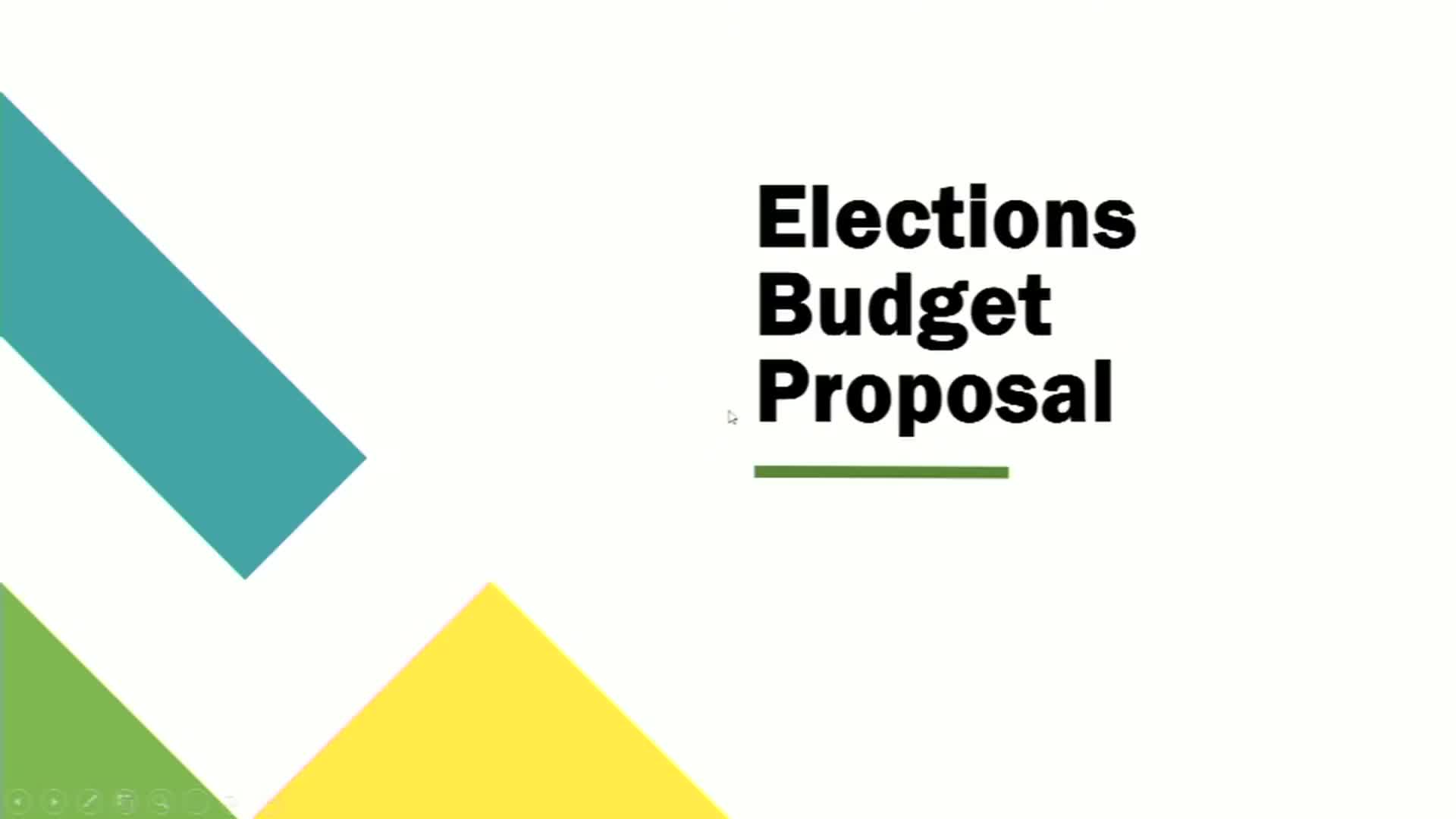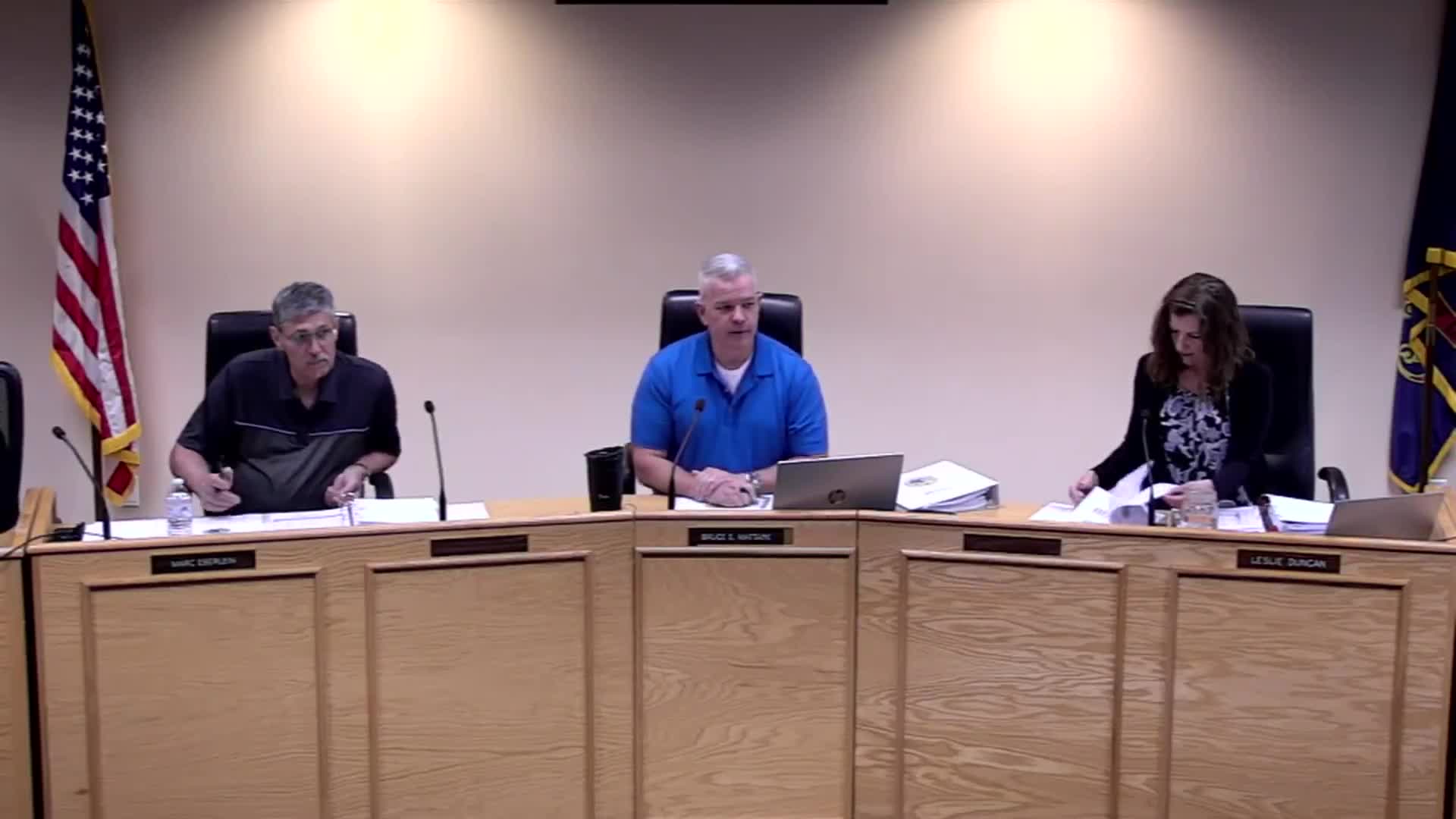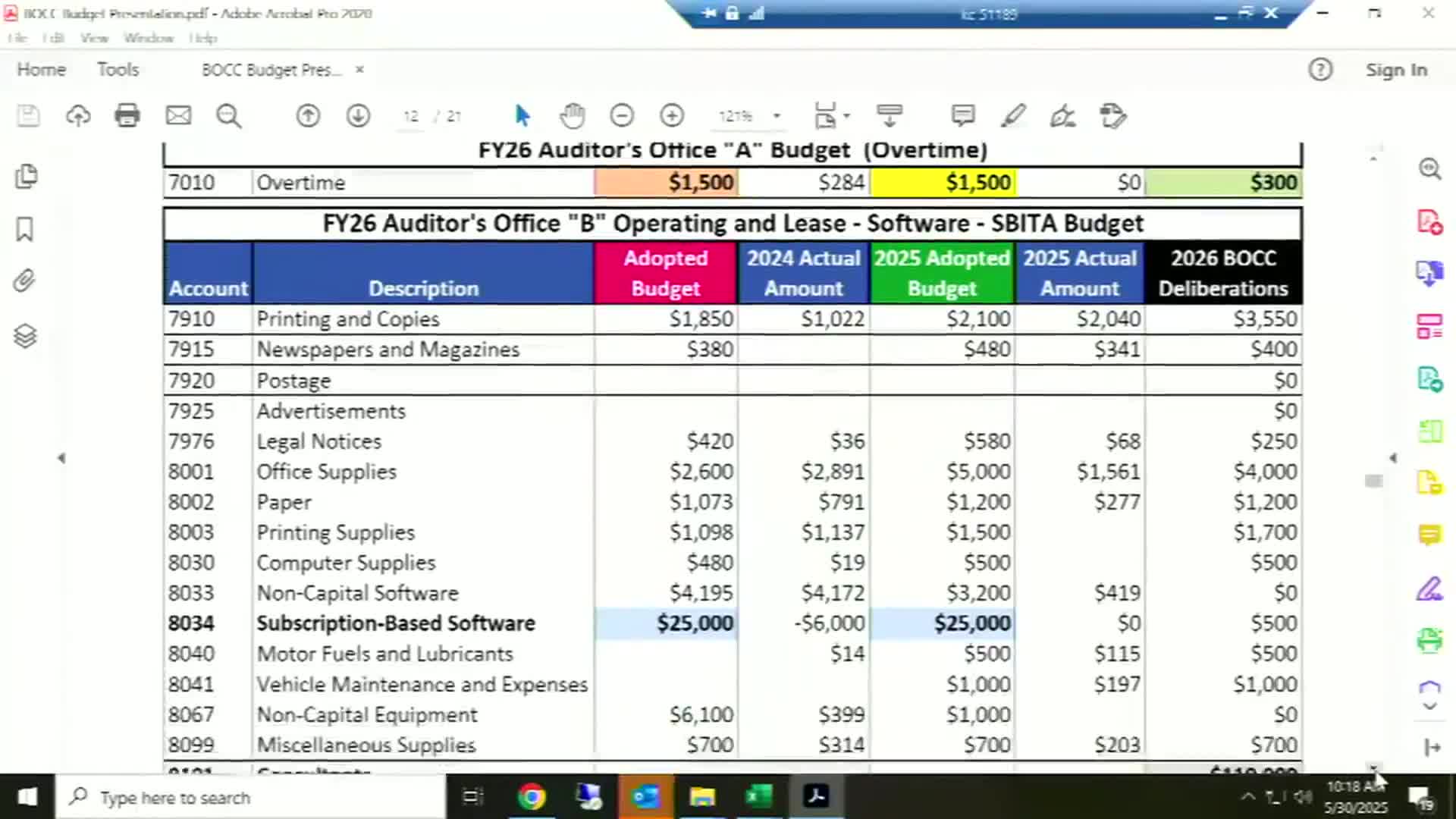Article not found
This article is no longer available. But don't worry—we've gathered other articles that discuss the same topic.

Elections office seeks $2 million-plus from fund balance for new voting system, requests personnel reorganization and equipment

Clerk's office outlines FY26 requests: recorder revenue trends, county assistance cuts and district court staffing for new judge

